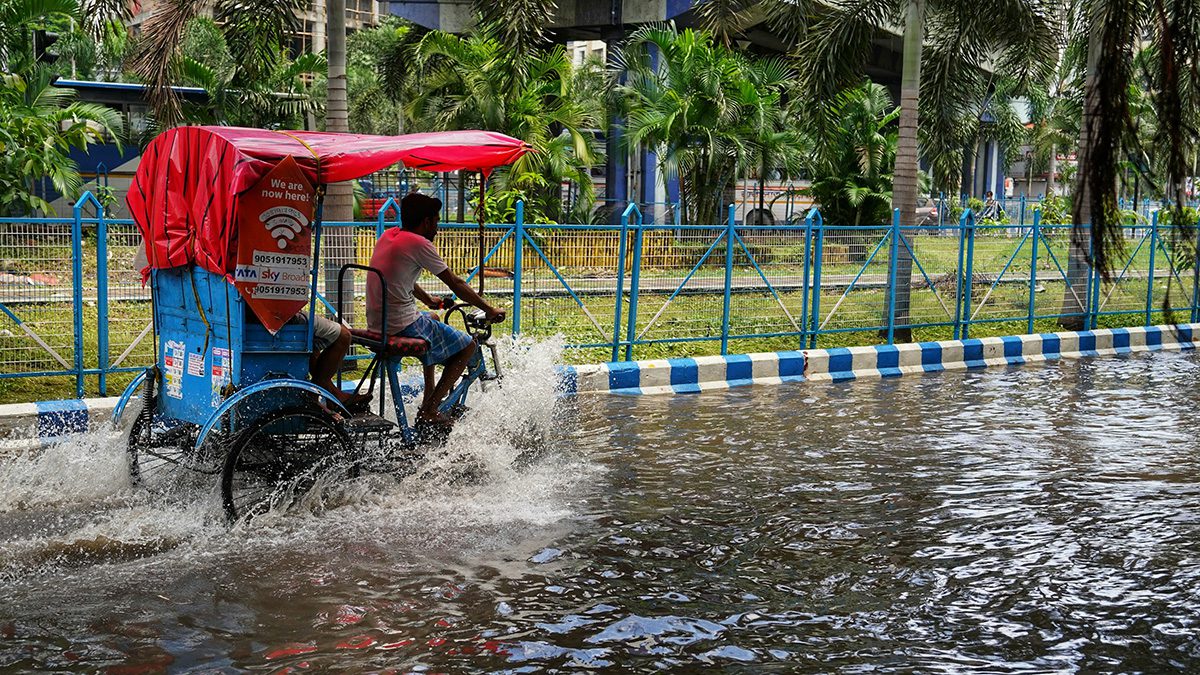Faculty Work on Climate
FACULTY CLIMATE RESEARCH GRANT PROJECTS
In February 2025, the Mittal Institute announced its first recipients of the Faculty Climate Research Grants. These grants are designed to foster deeper scholarly engagement on climate change, catalyze the creation of new knowledge, and contribute to the development of sustainable solutions across South Asia. Learn about the eight winning projects below:
Documenting Women’s Leadership in Climate Resilience Building in Koshi Province, Nepal
Principal Investigators: Vincenzo Bollettino, Director, Program on Resilient Communities at the Harvard Humanitarian Initiative; Director, National NGO Program on Humanitarian Leadership and Patrick Vinck, Research Director, Harvard Humanitarian Initiative; Assistant Professor, Harvard Medical School and Harvard T.H. Chan School of Public Health
Heat Stress in India: Why is Relative Humidity in Addition to Temperature on the Rise?
Principal Investigator: Peter Huybers, Professor of Earth and Planetary Sciences; Chair, Department of Earth and Planetary Sciences
A Systematic Review of Climate Change and Learning: Fostering Climate Resilient Education through Improved Policymaking
Principal Investigator: Asim Khwaja, Sumitomo-FASID Professor of International Finance and Development; Director, Center for International Development
Unveiling Gendered Climate Vulnerability in India: Blending Historical archives, Satellite and Census Data
Project Investigators: Eliana La Ferrara, Professor of Public Policy, Harvard Kennedy School; Aditi Bhowmick, CID PhD Affiliate, Concentrations in Development Economics & Labor Economics
Optimizing India’s Biofuel Capacity with Green Hydrogen Penetration: A Decarbonization and Emission Reduction Strategy
Principal Investigator: Michael B. McElroy, Gilbert Butler Professor of Environmental Studies, Department of Earth and Planetary Sciences and Harvard John A. Paulson School of Engineering and Applied Sciences; Chair, Harvard-China Project on Energy, Economy, and Environment
Climate Change, Loss and Damage, and Habitability in Nepal
Principal Investigator: Eugene Richardson, M.D., Ph.D., Assistant Professor of Global Health and Social Medicine, Harvard Medical School; Assistant Professor of Medicine, Brigham and Women’s Hospital
South Asia’s Role in Shaping a Future Global Climate Policy: The Case of Carbon Border Adjustment Mechanisms
Principal Investigator: Dustin Tingley, Thomas D. Cabot Professor of Public Policy, Harvard Kennedy School of Public Policy and Harvard Government Department
Music and Rain: Indigenous Climate Stories from South India (a film)
Principal Investigator: Richard K. Wolf, Professor of Music and South Asian Studies, Harvard University Department of Music
OTHER FACULTY RESEARCH GRANT PROJECTS ON CLIMATE
The Mittal Institute supports a wide range of work in South Asia through Faculty Grants, some of which also include climate research. Learn about the ongoing projects below.
Exposure to Indoor Air Pollutants (PM2.5) Measured by Low-Cost Monitors in Selected Villages of Rural South India
Principal Investigator: Gary Adamkiewicz, Associate Professor of Environmental Health and Exposure Disparities, Harvard T.H. Chan School of Public Health
Evaluating Crop Insurance as Climate Policy
Principal Investigator: Emily Breza, Frederic E. Abbe Professor of Economics, Department of Economics
Understanding and Planning for Climate Displacement in Pakistan
Principal Investigator: Mashail Malik, Assistant Professor of Government, Department of Government
Wells of Memory: Traditional Water Management Practices and Contemporary Urbanization in Rajasthan
Principal Investigator: Pablo Pérez-Ramos, Associate Professor of Landscape Architecture, Harvard Graduate School of Design
Granular estimates of the health impacts of environmental risks in India
Principal Investigators: S.V. Subramanian, Professor of Population Health and Geography, Harvard T.H. Chan School of Public Health; Arpit Shah, Mittal Institute Raghunathan Fellow 2024-25 and Assistant Professor in the Public Policy Area at IIM Bangalore

